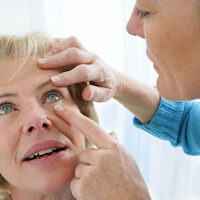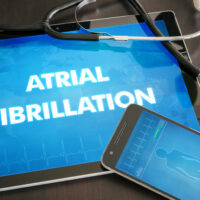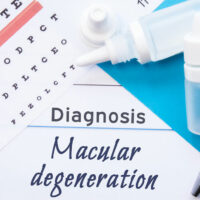Vitamins and minerals to take post-bariatric surgery

Bariatric surgery is a medical procedure that aims to promote metabolic changes and improve overall health for a better life. A lot of individuals choose to undergo this surgery for their well-being. However, the journey does not end with the surgery. After the surgery, it is essential to intake essential vitamins and minerals, as the surgery may reduce their regular food intake and their body’s ability to absorb these vitamins.
Vitamins to take after the bariatric surgery
To ensure that one does not experience vitamin deficiencies after the surgery, one must include the following vitamins in their routine.
Vitamin B1
Also known as thiamine, vitamin B1 plays a pivotal role in the human body by aiding the conversion of carbohydrates into energy. Besides this, vitamin B1 also contributes significantly to the growth and proper functioning of cells in the body. An adequate supply of vitamin B1 is essential, as its deficiency can have severe consequences on neurological health, potentially resulting in permanent issues.
Vitamin B12
Vitamin B12 is essential to maintain both blood and nerve cells and keep them healthy. Since the absorption of vitamin B12 may be compromised after surgery, it is crucial for one to effectively manage its intake. A deficiency of vitamin B12 is signaled by symptoms such as tingling and numbness in fingers and toes, fatigue, and cognitive challenges.
Vitamin D
Vitamin D plays a significant role in the absorption of calcium, which is the mineral that is responsible for maintaining the bone and teeth health. Its deficiency can cause osteoporosis, which is a bone disease characterized by the weakening of bones. It can lead to bones becoming soft and brittle, which then escalates the risk of fractures. Hence, ensuring adequate intake of vitamin D is paramount for skeletal integrity.
Vitamin A
Vitamin A aids and influences several functions of the body, such as vision, reproduction, immunity, and cellular communication. A deficiency in vitamin A can manifest as dry eyes and potentially progress to night blindness.
Vitamin E
Vitamin E helps maintain the body’s immunity. Along with that, it also ensures the proper functioning of various organs of the body. Its deficiency may lead to nerve and muscle damage, which can further cause muscle weakness, numbness in the arms and legs, and vision problems. One may also experience compromised immune function due to a vitamin E deficiency.
Vitamin K
Vitamin K is important for ensuring blood clotting and regulating blood calcium levels. Its deficiency can affect bone health and elevate the risk of excessive bleeding from wounds and injuries.
Minerals to take after the bariatric surgery
Besides these vitamins, it is also crucial for one to take the following minerals post-bariatric surgery:
Calcium
Calcium is essential for maintaining healthy bones and teeth. It also contributes to essential bodily functions such as growth, reproduction, blood clotting, muscle contraction, and hormone secretion. A calcium deficiency may manifest as numbness, tingling, lethargy, muscle cramps, and convulsions. Importantly, it needs Vitamin D for its proper absorption.
Iron
Iron is responsible for the production of hemoglobin, the key component in red blood cells responsible for transporting oxygen throughout the body. An iron deficiency can cause anemia, which is a condition characterized by symptoms such as lack of energy, hair loss, brittle nails, memory impairment, and reduced ability to fend off infections.
Folate
Folate plays a crucial role in the formation of red blood cells. It is particularly important for pregnant individuals, as it supports the healthy development of a baby. A folate deficiency can lead to symptoms such as weakness, fatigue, irritability, headaches, and shortness of breath.
Zinc
Zinc is a mineral that contributes to several bodily functions, such as cell growth, DNA synthesis, protein building, reproduction, immune function, and healing wounds. A deficiency in zinc can manifest in taste changes, loss of appetite, reduced immune function, hair loss, and cognitive challenges. However, in terms of taking zinc, one must ensure that they do not consume more than recommended, as even increased amounts of zinc in the body can cause severe health issues.
Copper
Copper plays a pivotal role in the body by contributing to energy production, making connective tissues, and making blood vessels. It also aids in maintaining healthy immune and nervous systems. Copper deficiency in the body can result in extreme fatigue, connective tissue diseases, and hindered immune function.
After undergoing bariatric surgery, it is crucial for an individual to have a conversation with their doctor regarding the recommended amount of vitamins and minerals they should take, as well as the best way to consume them. Since the requirements of each individual differ, personalized advice from a medical professional is essential in this matter. It is also important to attend regular checkups with the doctor, as this helps them monitor the individual’s health and make any necessary adjustments to their vitamin and mineral plan. By maintaining open communication, the individual can ensure they are receiving the appropriate nutrients in the proper amounts, which promotes their overall well-being as they recover from the surgery.
Furthermore, adopting certain lifestyle changes and incorporating regular exercise are crucial steps to ensure the success of bariatric surgery, in addition to focusing on vitamins and minerals.





